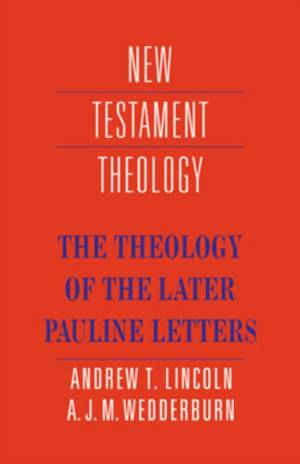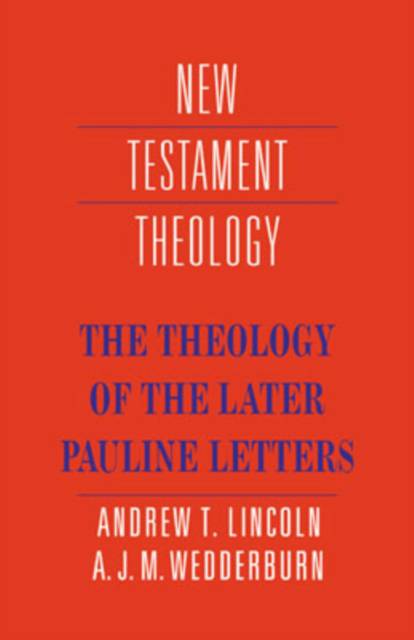
- Afhalen na 1 uur in een winkel met voorraad
- Gratis thuislevering in België vanaf € 30
- Ruim aanbod met 7 miljoen producten
- Afhalen na 1 uur in een winkel met voorraad
- Gratis thuislevering in België vanaf € 30
- Ruim aanbod met 7 miljoen producten
Zoeken
Omschrijving
This volume investigates the respective theologies of the Letters to the Colossians and the Ephesians, and in so doing provides an accessible introduction to the themes and significance of these New Testament books. A. J. M. Wedderburn examines the background to Colossians, and considers both its readers' situation and that of its author. He asks whether the proponents of the teaching against which this letter is written were Christians, putting forward their views as the true form of Christianity (as in Galatia), or whether they existed outside the Christian community as a seductive alternative to it. Andrew T. Lincoln examines in turn the authorship of Ephesians, and tries to explain the letter's strategy of persuasion and the key elements of its teaching about the new identity of the Christian believer. The similarities and differences between the thought of Ephesians and that of Paul are thereby set out clearly. Both sections of the book reflect on the relevance of these letters for today.
Specificaties
Betrokkenen
- Auteur(s):
- Uitgeverij:
Inhoud
- Aantal bladzijden:
- 200
- Taal:
- Engels
- Reeks:
Eigenschappen
- Productcode (EAN):
- 9780521367219
- Verschijningsdatum:
- 25/06/1993
- Uitvoering:
- Paperback
- Formaat:
- Trade paperback (VS)
- Afmetingen:
- 137 mm x 214 mm
- Gewicht:
- 244 g

Alleen bij Standaard Boekhandel
+ 100 punten op je klantenkaart van Standaard Boekhandel
Beoordelingen
We publiceren alleen reviews die voldoen aan de voorwaarden voor reviews. Bekijk onze voorwaarden voor reviews.











